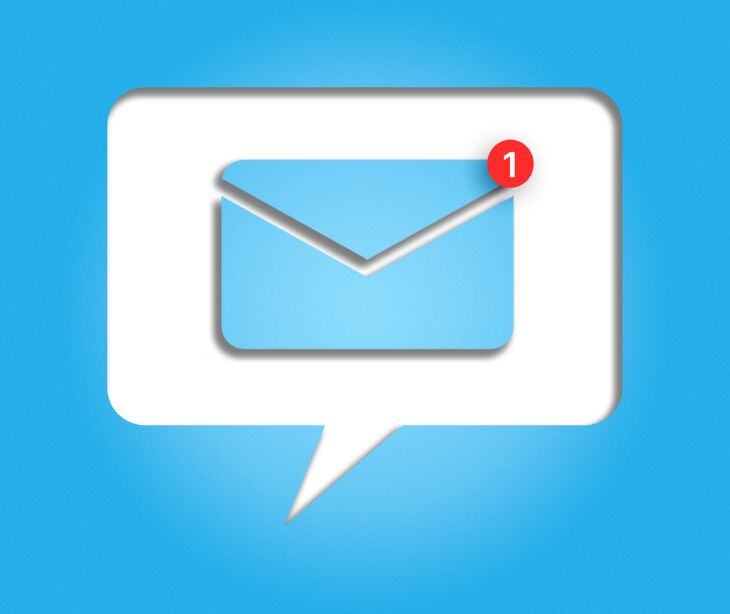3 min read
Email for mental healthcare access in people with disabilities
Caitlin Anthoney April 01, 2024

HIPAA compliant emails can be used to communicate with individuals with physical disabilities. The emails can be tailored to their mental health needs and provide resources for accessing appropriate care.
Accessibility
The CDC states that “In the United States, up to 1 in 4 adults have a disability.” Disabilities can range from physical limitations to cognitive impairments, impacting individuals in various ways. Some common types of disabilities include mobility issues, vision or hearing loss, and intellectual disabilities.
According to the CDC, “Adults with disabilities report experiencing frequent mental distress almost 5 times as often as adults without disabilities.”
More specifically, “An estimated 17.4 million (32.9%) adults with disabilities experienced frequent mental distress, defined as 14 or more reported mentally unhealthy days in the past 30 days.”
Evidently, disabilities can affect an individual’s mental well-being. However, accessing mental healthcare can be challenging for people with disabilities. Some of these barriers to access can include mobility limitations and transportation issues. So, traditional methods of accessing mental health support, like in-person appointments, may not be feasible.
For example, an individual with a physical disability faces difficulty in commuting to a mental health clinic due to mobility limitations. The individual may rely on specialized transportation services, which may not always be accessible, which could lead to missed appointments.
In such a case, emails could offer a convenient and accessible means of communication that could bypass many of the barriers associated with traditional in-person appointments. It could help individuals with disabilities connect with mental health professionals without having to leave their homes.
Individuals can email their provider to schedule appointments, communicate with mental health professionals, and access resources without needing to travel physically. This eliminates the logistical challenges associated with transportation and accommodation, ensuring timely access to mental health care.
Flexible communication
People with disabilities often require flexible communication options tailored to their specific needs. Email communication offers the flexibility to exchange messages anytime, accommodating individuals who may have communication difficulties or require additional time to express themselves.
For example, an individual with cerebral palsy may struggle with verbal communication, so they could opt to use email. This could help them communicate at their own pace, expressing their thoughts and concerns without feeling rushed.
Emails for follow-up care
The National Alliance on Mental Illness further explains, “Many people with disabilities experience traumatic stress due to the painful treatments received for their physical condition, as well as depression and anxiety from the isolation they experience.”
Emails also allow follow-up care, which helps mental health professionals provide ongoing support and monitor progress remotely. This continuity of care could help address the complex mental health needs of individuals with disabilities. Providers can incorporate email into follow-up care protocols, which could increase the accessibility and effectiveness of mental health services.
For example, a provider can email personalized resources to patients between sessions. This could allow more consistent support and reinforcement of therapeutic techniques. Additionally, email communication can help bridge gaps in care for individuals who may have difficulty attending in-person appointments due to physical limitations.
Personalized emails and patient privacy
Providers can use a secure platform to create personalized emails that cater to the unique needs of physically disabled individuals while maintaining HIPAA compliance.
This allows providers to create emails with relevant health information and specific accessibility features while safeguarding patients’ protected health information (PHI). For example, a mental health clinic could use a secure platform, like Paubox, to send coping strategies specific to each patient’s needs.
These emails could include alternative text for images, clear formatting for readability, and options for audio recordings or video demonstrations to accommodate various disabilities. This could help individuals with physical disabilities access and benefit from mental health support in a manner that respects their unique abilities and challenges.
FAQs
Can emails help streamline collaboration between mental health professionals and other providers?
Yes, providers can use a HIPAA compliant platform, like Paubox, to share patient updates and collaborate on treatment plans.
How does email communication ensure clarity and continuity in the therapeutic process?
Emails provide a written record of communication that can be referenced at any time, ensuring clarity in information exchange and promoting continuity in the therapeutic relationship.
How can healthcare providers and advocacy organizations collaborate to enhance mental health services for individuals with disabilities?
Healthcare providers and advocacy organizations can work together to develop strategies to improve accessibility, address systemic barriers, and promote awareness of mental health issues among individuals with disabilities.
Go deeper: Using email and text messaging in health advocacy
Subscribe to Paubox Weekly
Every Friday we'll bring you the most important news from Paubox. Our aim is to make you smarter, faster.



